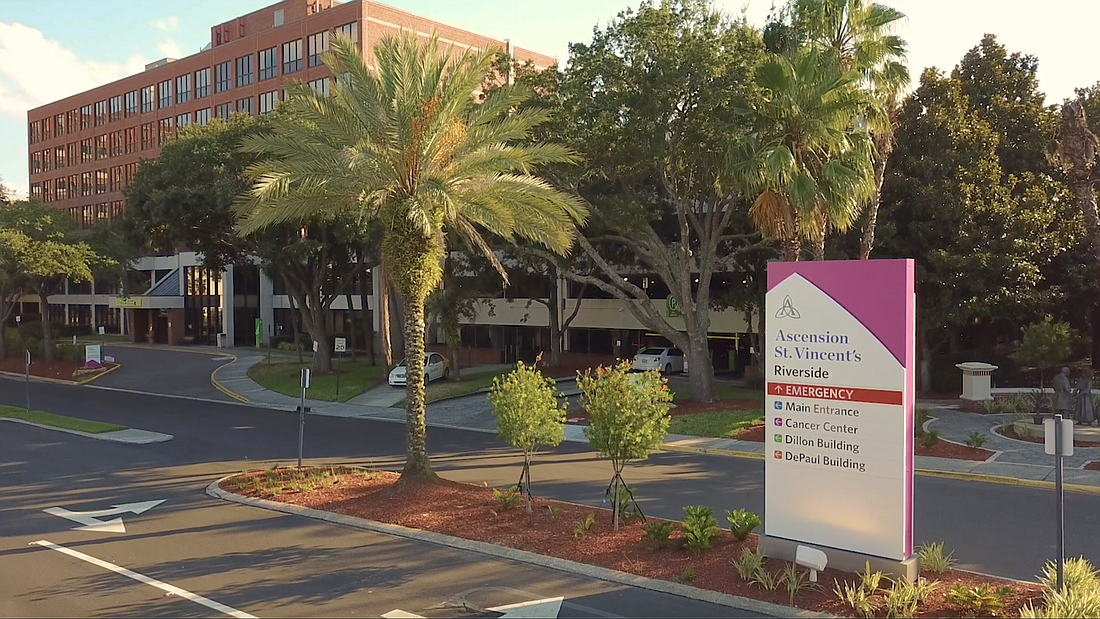
Despite hospital efforts to let patients know it is safe to come to the emergency room for treatment, health care leaders in Jacksonville and across the country say they are seeing fewer patients in the ER than they should.
“It was becoming evident with the drops in volume that people didn’t just stop having strokes, they didn’t stop having heart attacks, they didn’t stop having infections other than COVID,” said Dr. Andy Godwin, UF Health Jacksonville Emergency Department chair.
“Where did all these people go?”
In May, UF Health Jacksonville and UF Health North hit their lowest ER volumes during the pandemic, Godwin said.
The Downtown hospital’s ER volume was down 28% from May 2019 and UF Health North’s was down about the same at 27%.
Those numbers have increased slightly, Godwin said. In June, the two hospitals were down around 13% to 15%.
July was about the same in ER volume, but the hospitals were nearly full with an increase in COVID-19 patients.
In August, emergency department volumes were down around 20% at both hospitals from last August. UF Health has seen fewer pediatric patients, too. At its lowest point in May, pediatric volumes were 52% lower than the year before.
The number of trauma patients remained about the same, but with a slight 4% to 5% drop between May and August. Godwin said that could be attributed to fewer people driving or going outside their homes.
Ascension St. Vincent’s also saw a 50% overall drop in its ER volume since the start of the pandemic. Cardiac and stroke patients also are coming in about 50% less than normal, said Dr. Samer Garas, medical director of Ascension St. Vincent’s cardiovascular line.
The hospital did not have month-to-month ER data to share.
The Centers for Disease Control and Prevention reported that emergency room visits dropped as much as 42% nationally during a study conducted between March 31 and April 27. During another study May 24-30, volumes increased but were still 26% lower than the previous year.
Garas said a few factors caused the drops.
“Patients are very cautious. They don’t want to leave the house because they are afraid of COVID and are afraid they will overwhelm the system,” he said. “They are appropriate reasons, but when they do come in they are either really sick, or it’s too late.”
Waiting for care can affect patients’ health, Garas said. Some cardiac and stroke patients can have irreversible damage if they wait too long for care.
With so many patients not coming to the ER, Godwin said at UF Health especially, the entire hospital feels the effects.
Around 65% of UF Health Jacksonville’s admissions come from ER patients.
“That does impact the hospital bottom line by decreasing those volumes,” Godwin said.
The decrease in volume is somewhat made up for by a higher percentage of admissions. Although fewer people are coming into the ER, more of them are being admitted because they are sicker when they arrive.
During a COVID-19 spike in July, Godwin said UF Health Jacksonville was nearly full. COVID patients were filling the hospital, and typically, their stays are lengthier than most other patients.
That created a backlog which caused non-COVID patients to stay in the ER, rather than be admitted to another unit.
Garas said it is important for patients to know that it is safe to come to the hospital and that they will not overwhelm the system if they do.
“Everything is elective until it’s not,” he said. “Patients may have a little chest pain and stay home, however that may lead to a massive heart attack and that makes it harder to treat the patient.”